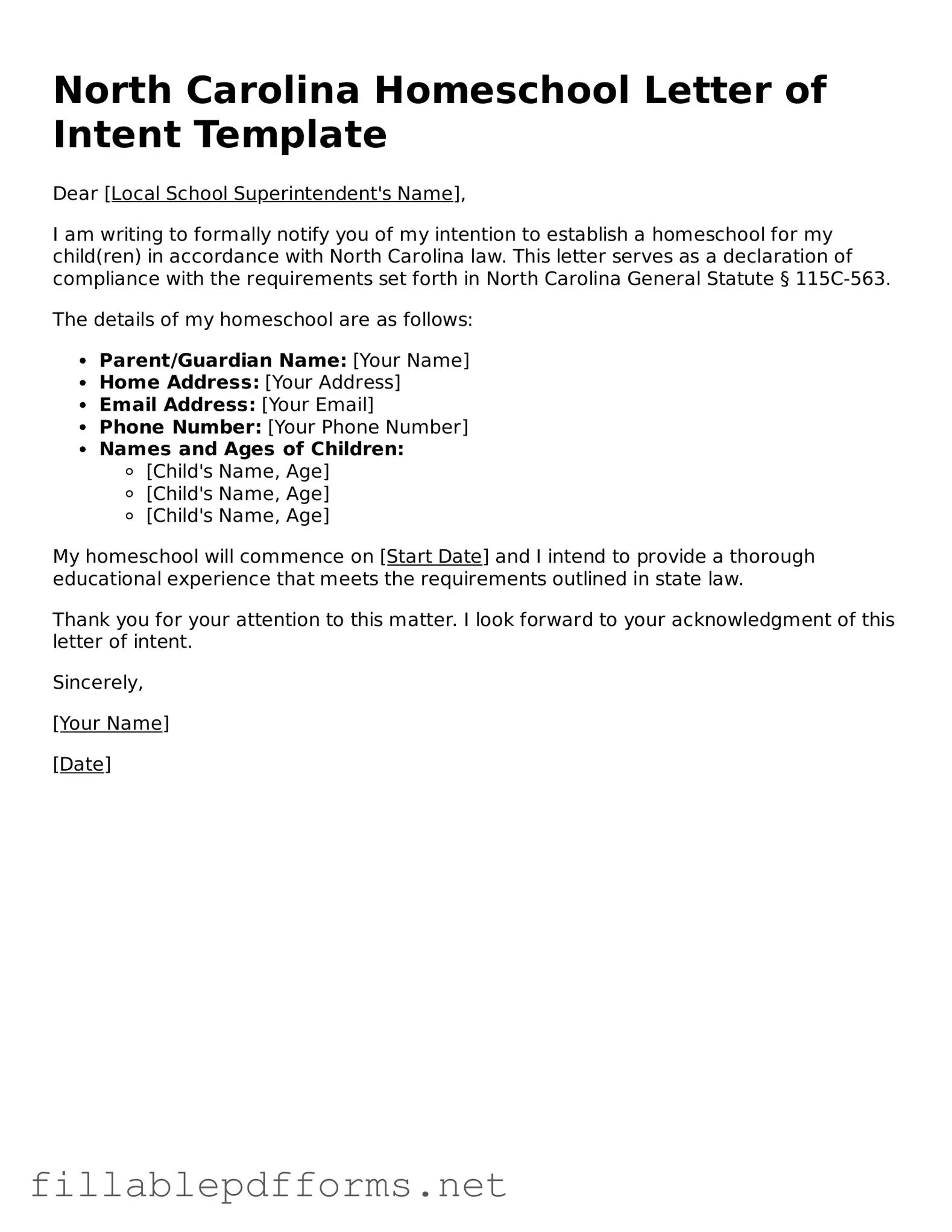Attorney-Verified Homeschool Letter of Intent Form for North Carolina State
The North Carolina Homeschool Letter of Intent form is a crucial document that parents must submit to officially notify the state of their intention to homeschool their children. This form helps establish a clear educational plan and ensures compliance with state regulations. By completing this form, families can embark on their homeschooling journey with confidence and clarity.
Launch Editor Here

Attorney-Verified Homeschool Letter of Intent Form for North Carolina State
Launch Editor Here

Launch Editor Here
or
▼ Homeschool Letter of Intent PDF
Almost there — finish the form
Complete Homeschool Letter of Intent online fast — no printing, no scanning.